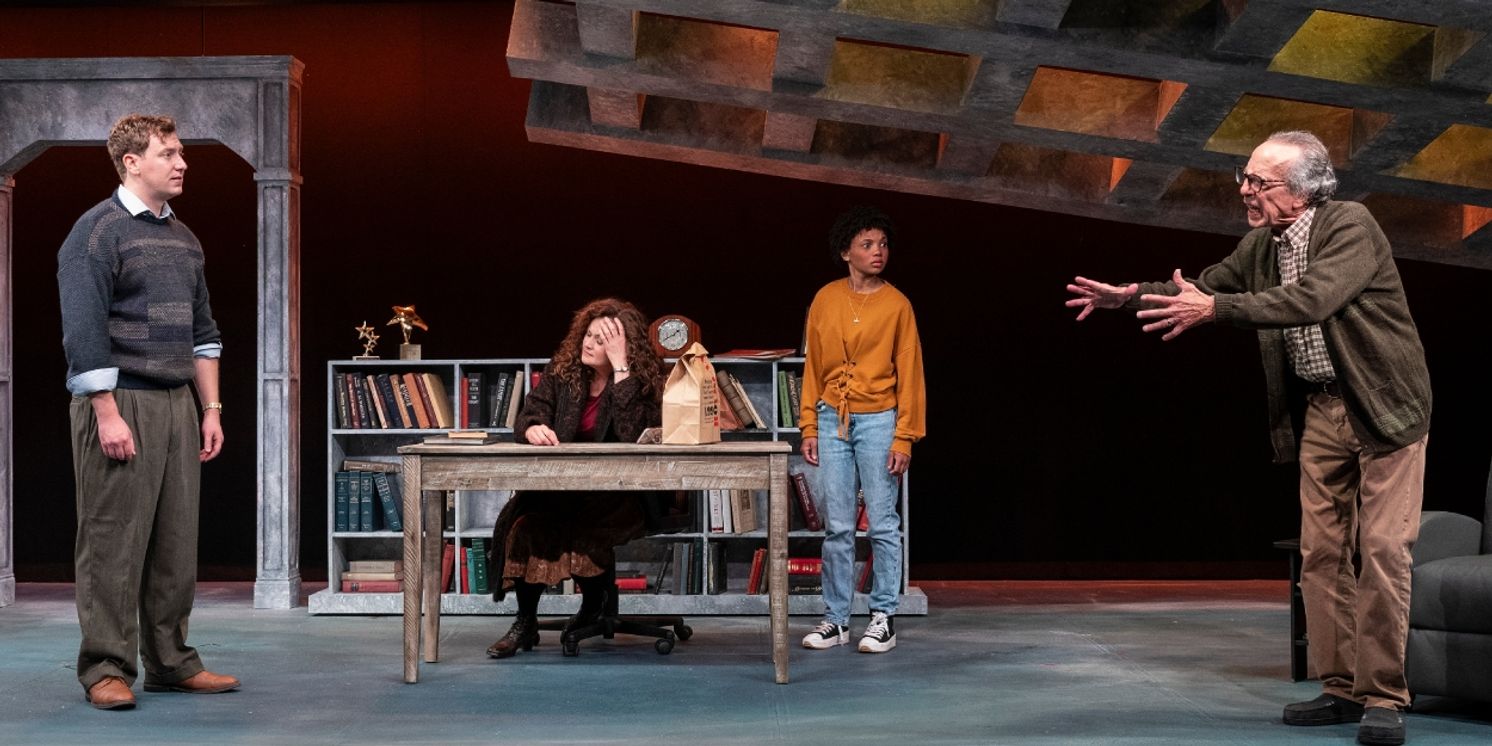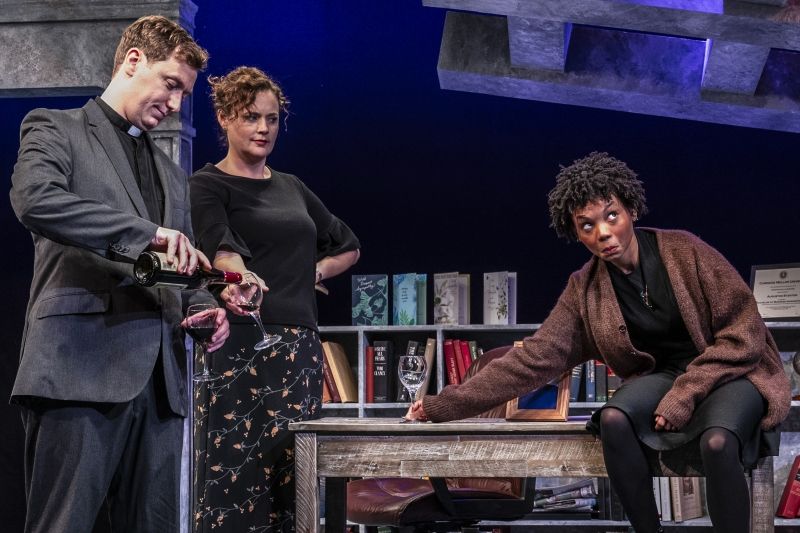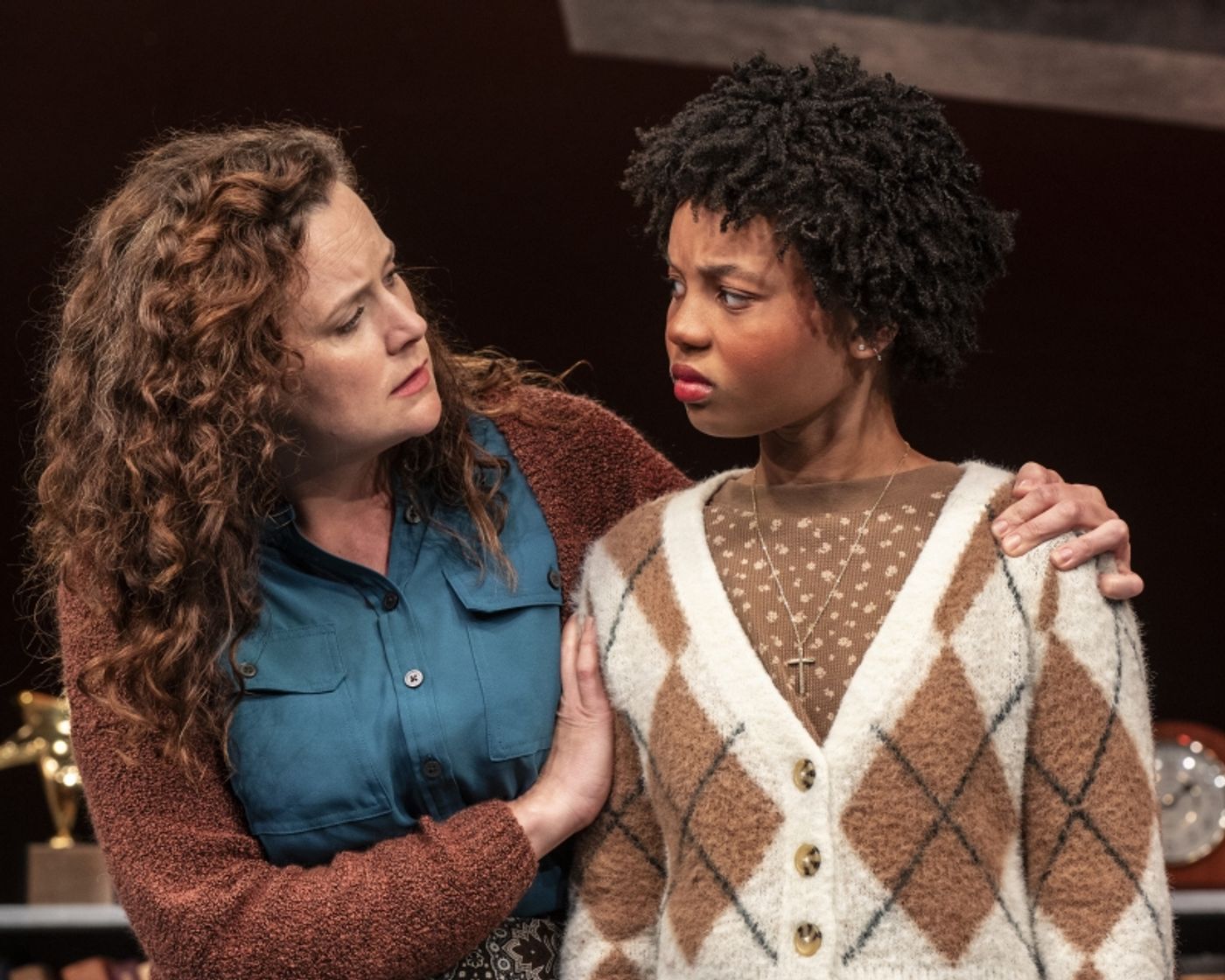Review: FAITHLESS at Washington Stage Guild
The production runs through October 20th

Faithless made its area debut this September 29th at Washington Stage Guild. The piece follows an older father, Gus (Ron Litman), his two stepchildren, Claire (Patricia Hurley) and Calvin (Ben Blackman), and his adopted daughter, Rosie (Hannah Taylor).
At the top of the show, Gus has invited Claire, a high-school teacher, and Calvin, a Presbyterian minister, to his house, where he raised the children with his late wife. He wants them to help him confront Rosie, who has announced she wants to become a nun.
![]()

The show immediately bites into the meat of its themes— religion and faith. Gus wants Claire and Calvin to help him talk her out of it, which they mostly try to. There is some tantalizing commentary explored here briefly, if inadvertently. Rosie, a black woman from another country wants to embrace a universalizing religion, one used historically to aid in the colonialism of people of color all over the world, and these WASPS are begging her to stop. This isn't played into really, but is nonetheless an interesting lens through which to view the conversation.
Each family member gives their peace. It would be an oversimplification to say that each family member represents a religious faction, but for all intents and purposes, that's what happens— Calvin obviously represents Presbyterianism, Rosie Catholicism, Gus is an ardent atheist, and Claire is an agnostic of sorts, not buying too much into any one thing. The four spar about theology, with Gus and Claire really trying to shake Rosie of this conviction. They worry she won't get to experience life as a young woman should, though Calvin argues her generation desperately seeks out order, so it makes sense.
On top of the theological debates and representation, the piece also explores generation. Rosie is a young woman, Gus is an older man, and Calvin and Claire are adults presumably under 50. The show was clearly written by someone probably closer to Claire/Calvin's age, it pokes fun a bit at the younger generation, but fortunately doesn't get too condescending, and remains light and funny.
After multiple people get upset, Gus' late wife/Calvin and Claire's mother gets brought up. Tension rises and Rosie and Claire leave to grab some things from the liquor store. Classic father-son tension presents itself to the two men of the show. As it progresses we'll learn Gus blames Calvin for his wife's death, as she attended his sermons during the height of covid.
Disaster strikes when Claire hits her head while slipping on ice outside, and must be taken to the hospital. Post almost death/coma Claire recounts her experience, potentially in her brief stint in the beyond, to Calvin. It is meditative and does not fit with any organized religion. The two argue, as Calvin views her vision and intense feelings about it as blasphemous.
Blackman and Hurley really shine here. Due to some of the show's writing, or perhaps Steve Carpenter's direction, the piece can dip its toe into some "over-acting," particularly at the top of the show, and particularly from Litman. While not egregious, it misinterprets what the next 90 minutes will be. Fortunately, as in the aforementioned scene with Blackman and Hurley, the show evolves to spotlight intimate moments, both of tenderness and of great conflict. As the show goes on these introductory caricatures of our characters get broken down and explored, allowing the actor to play.
Hurley is quite the scene stealer, both in drama and comedy, and led the cast (though no one character was the focus of the show, but rather the family as a unit) with a banner of good timing, and genuine depth.
The piece continues at a healthy pace. It's about 90 minutes long, but never drags. The humor keeps the action chugging along— it's pretty clever and witty, sometimes almost brushing up against sit-com joke structure. The family quips and nips at each other in a way that feels incredibly, well, family-like, love disguised as hostility.
The show screeches to a halt at its climax. Calvin finally confronts Gus about his belief that Calvin killed his wife, and the family reveals that in her end years, his wife took comfort in her religion, and even prayed frequently, for Gus no less, a practice which Gus thought she had left behind, to join him in the wise ways of atheism. The betrayal and confrontation work their way through Gus' psyche and body, and he collapses.
In the hospital, due to issues with his prostate, Gus makes peace with all his children, and with his past. The conflict is resolved, and so is the argument— it's silly to concern yourself so obsessed with the beliefs of others. Especially if those others love and care for you regardless. He passes, and the three children are left to piece their family back together.
The show finishes on the note of each character's faith metamorphosing— Gus, though passed, took comfort in his teenage Catholicism before he passed, Calvin is reinvigorated in his ministry, so much so he is comfortable exploring his sexuality, Claire is content to look forward to her amorphous memory heaven, and Rosie is excited to explore her commitment and love for God, without, perhaps, the stoic life of being a nun. The lesson learned is that Faith is fluid, and reactionary. As we grip on to it (or cast it aside) it too grips on to us, mutually forming each other. As it is with family.

The goal of the show is to provoke conversation about faith and family, and is successful in that. It does not feel as perhaps toothy or biting as one might expect a piece that tackles age-old religious institutions, but opts for a more ponderous, meandering approach, suitable for its intended audience.
The visual world of the show was also satisfactory. The costumes (Cheyenne Taylor Hill) particularly did an excellent job at communicating the world of the characters. They were immediately recognizable, and hinted at archetypes, however, did not feel like "costumes." For example Calvin's attire immediately read as a Ned Flanders type WASPY well to do man, without feeling comical or like he was the butt of a joke. Set designer Gisela Estrada also made good use of the space, opting for simple mutable pieces that suited the small proscenium.
Faithless is a good time, and rather wholesome and humorous dip into the intersections of bonds and theology. It may have something to say, but would prefer you take home your own conclusions and musings. It asks you to consider what you are committed to, what you believe in, and most of all, why? Due to its humor and pacing, the piece seems geared toward older audiences, but would be enjoyable to college students and maybe even some younger ones. It runs for about 90 minutes, and you can find tickets on Washington Stage Guild's website at stageguild.org.
Reader Reviews
Videos

